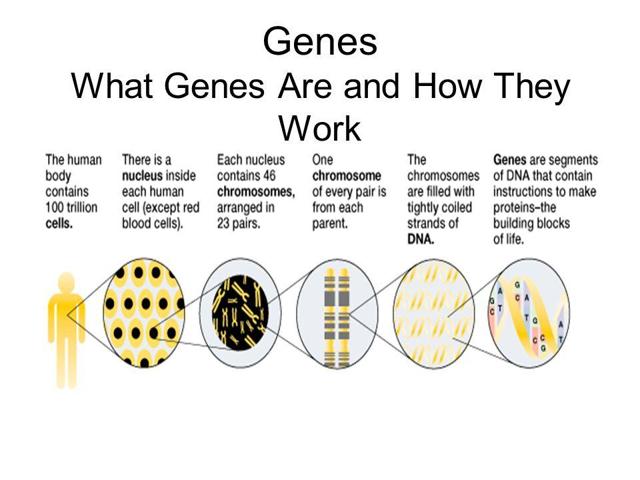Food as Matter, Food as Energy, Food as Information
From: Why Food Is Actually Information: Studies Show Changes in microRNA
This particular article brings up the current concept of food being information. Some quotes from the article include:
"In the process of reducing food’s value to these strictly quantitative dimensions, it has lost its soul. Food is no longer believed to possess a vital life force, much less a sacred one. But the very etymology of sacred, namely, to make holy, and the etymology of holy, which connects to heal, whole, and health, points us toward food’s ability to make us whole."
The human’s very first meal, as designed, emphasizes this component:
“Breast milk taken from the mother’s breast was simultaneously a nutritional, physical, thermic, emotional, genetic, and spiritual form of nourishment. Food, therefore, can’t and shouldn’t truly be reduced to an object of biochemistry."
We usually view food from a material perspective:
"Our concept of food is still generally constrained to the Newtonian view that all things are comprised of atoms, externally related to one another, and built up from there into molecules, cells, etc.""The story goes that when we eat things, digestion breaks them down into their constituent parts and our bodies then take these parts and build them back up into our blood and bones. ... the correlate perspective [is], that food can be ‘burned' for energy and that, like a furnace or a car, our body uses food for ‘fuel' measured by calories to drive its engines along."
This article looks at three perspectives on food – as matter, as energy, and as information:
“Food ... is considered ‘dead,' and not biologically meaningful beyond its brick-and-mortar functions in building up the body-machine.”
Secondly, food as energy; fuel that is “burned” to create energy:
"Energy is commonly defined as the power derived from the utilization of physical resources, ... food provides the fuel to power the body-machine."
"... food isn’t an informational substance in the biological sense (e.g., DNA), but simply a source of energy that can fuel the body-machine."
"The new view of food as replete with biologically important information, is based on a number of relatively recent discoveries in various fields of scientific research.""For instance, the discovery that food contains methyl groups (a carbon atom attached to three hydrogen atoms (CH3) capable of methylating (silencing) genes, brought into focus the capability of food to profoundly affect disease risk as well phenotypal expression.""...food becomes a powerful informational vector, one which may actually supervene over the DNA within our body by determining which sequences find expression.""This discovery of nutrition’s prime role in epigenetics opened up an entirely new realm of research, ... It’s newly discovered information role could affect, and, in some cases, control, the expression of the DNA—biomedicine’s holy grail."
There are additional components to food as information:
"Food also contains classical genetic information vectors, such as non-coding RNAs, which—like methyl donors—have the ability to profoundly alter the expression of our DNA. In fact, there are estimated to be somewhere in the range of 100,000 different sites in the human genome capable of producing non-coding RNAs, far eclipsing our 20,000 to 25,000 protein-coding genes.""Together, these RNAs orchestrate the expression of most of the genes in the body. They are, therefore, supervening forces largely responsible for maintaining our genetic and epigenetic integrity."
So you literally “become what you eat.” But more than physical objective methods we need to take into account the subjective informational aspects of food, and food preparation:
“The microbiome could be considered food’s most profound informational contribution. When we consider the genetic contribution of all the bacteria, fungi, and viruses naturally found in food ... this represents a vast store of biologically meaningful information."
"A recent study identified ... a byproduct of having consumed seaweed ... capable of digesting ... a type of carbohydrate that humans aren’t equipped to digest. This indicates that the genes provided by these microbes represent a genetic library of sorts, whose contributions may vastly extend the genetic capabilities of our species."
"Indeed, the human genome only contains genetic templates for 17 enzymes, whereas the gut bacteria contains genetic information capable of producing hundreds of different enzymes. And these are capable of degrading thousands of different carbohydrates."
"Not only has water been found to carry energy and information, but water [also] could contribute biologically important information—even genetic and epigenetically meaningfully information—without needing nucleic acids to do so."
"All readily edible food is hydrated."
"Water, which is capable of taking in free energy from the environment, ... has its own information and energy. ... water content has the potential to carry relatively vast amounts of information beyond what is found in its material composition itself."
The article concludes:
"When food is looked upon as a vital source of biologically important information that can inform the expression of our genome, it’s much easier to understand how our ancestors considered its creation, production, harvesting, cooking, and consumption sacred."
"Once we understand the true implications of food as information, our entire worldview should change."
So is not only is the food you eat composed of matter, consumed and used as energy, it also as a component of information, that is, instruction, that directly effects the structure and function of our bodies.
Read the article at the link above for all details.




Comments
Post a Comment